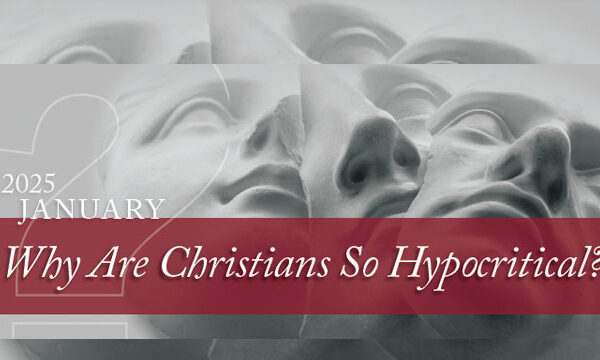Back to series

July 2017
In an essay first published in 1942, C.S. Lewis discussed a principle concerning first and second things. An excerpt follows:
 Until quite modern times — I think, until the time of the Romantics — nobody ever suggested that literature and the arts were an end in themselves. They “belonged to the ornamental part of life”, they provided “innocent diversion”; or else they “refined our manners” or “incited us to virtue” or glorified the gods. The great music had been written for Masses, the great pictures painted to fill up a space on the wall of a noble patron’s dining-room or to kindle devotion in a church; the great tragedies were produced either by religious poets in honour of Dionysus or by commercial poets to entertain Londoners on half-holidays.
Until quite modern times — I think, until the time of the Romantics — nobody ever suggested that literature and the arts were an end in themselves. They “belonged to the ornamental part of life”, they provided “innocent diversion”; or else they “refined our manners” or “incited us to virtue” or glorified the gods. The great music had been written for Masses, the great pictures painted to fill up a space on the wall of a noble patron’s dining-room or to kindle devotion in a church; the great tragedies were produced either by religious poets in honour of Dionysus or by commercial poets to entertain Londoners on half-holidays.
It was only in the nineteenth century that we became aware of the full dignity of art. We began to “take it seriously”… But the result seems to have been a dislocation of the aesthetic life in which little is left for us but high-minded works which fewer and fewer people want to read or hear or see, and “popular” works of which both those who make them and those who enjoy them are half ashamed… by valuing too highly a real, but subordinate good, we have come near to losing that good itself.
The longer I looked into it the more I came to suspect that I was perceiving a universal law… The woman who makes a dog the centre of her life loses, in the end, not only her human usefulness and dignity but even the proper pleasure of dog-keeping. The man who makes alcohol his chief good loses not only his job but his palate and all power of enjoying the earlier (and only pleasurable) levels of intoxication. It is a glorious thing to feel for a moment or two that the whole meaning of the universe is summed up in one woman — glorious so long as other duties and pleasures keep tearing you away from her. But clear the decks and so arrange your life (it is sometimes feasible) that you will have nothing to do but contemplate her, and what happens? Of course this law has been discovered before, but it will stand re-discovery. It may be stated as follows: every preference of a small good to a great, or partial good to a total good, involves the loss of the small or partial good for which the sacrifice is made.
Apparently the world is made that way… You can’t get second things by putting them first; you can get second things only by putting first things first.1
In a letter to Dom Bede Griffiths in 1951, Lewis stated this principle succinctly:
Put first things first and we get second things thrown in: put second things first & we lose both first and second things. We never get, say, even the sensual pleasure of food at its best when we are being greedy.2
How about you? Are there any areas in your life where you are putting second things first?
“But seek first the kingdom of God and his righteousness,
and all these things will be added to you.”
MATTHEW 6:33 (ESV)
1 C.S. Lewis, “First and Second Things,” God in the Dock (Grand Rapids, MI: William B. Eerdmans Publishing Co., 1970), pp. 278-280.
2 The Collected Letters of C.S. Lewis, Vol. III, Narnia, Cambridge and Joy, 1950-1963, edited by Walter Hooper, HarperSanFrancisco, 2007, p. 111.
 COPYRIGHT: This publication is published by C.S. Lewis Institute; 8001 Braddock Road, Suite 301; Springfield, VA 22151. Portions of the publication may be reproduced for noncommercial, local church or ministry use without prior permission. Electronic copies of the PDF files may be duplicated and transmitted via e-mail for personal and church use. Articles may not be modified without prior written permission of the Institute. For questions, contact the Institute: 703.914.5602 or email us.
COPYRIGHT: This publication is published by C.S. Lewis Institute; 8001 Braddock Road, Suite 301; Springfield, VA 22151. Portions of the publication may be reproduced for noncommercial, local church or ministry use without prior permission. Electronic copies of the PDF files may be duplicated and transmitted via e-mail for personal and church use. Articles may not be modified without prior written permission of the Institute. For questions, contact the Institute: 703.914.5602 or email us.
-
Recent Podcasts
From Anti-Christian to Pastor – Brian Smith’s Story
by Jana Harmon, Brian Smith on January 17, 2025Brian grew up in a small Georgia town...Read More
-
Time With God
by Aimee Riegert, J.I. Packer on January 10, 2025
-
Faith and Reason – Henare Whaanga’s Story
by Henare Whaanga, Jana Harmon on January 3, 2025
-
Recent Publications
Why Are Christians So Hypocritical?
by William L. Kynes on January 1, 2025Oh, the hypocrisy of those Christians—they talk so...Read More
-
How Artists and Their Art Can Point Us to the Creator
by Russ Ramsey on December 2, 2024
-
What about Jesus’s Childhood?
by Jim Phillips on December 1, 2024
0
All Booked
0.00
All Booked
0.00
All Booked
23931
GLOBAL EVENT: Sentenced to Death with Maryam Rostampour-Keller, 8:00PM ET
https://www.cslewisinstitute.org/?event=global-event-sentenced-to-death-with-maryam-rostampour-keller-800pm-et&event_date=2025-02-07®=1
https://www.paypal.com/cgi-bin/webscr
2025-02-07

Next coming event
Days
Hours
Minutes
Seconds
GLOBAL EVENT: Sentenced to Death with Maryam Rostampour-Keller, 8:00PM ET
On February 7, 2025 at 8:00 pmSpeakers

C.S. Lewis Institute
Author
Team Members
C.S. Lewis Institute
Author
C.S. Lewis Institute, in the legacy of C.S. Lewis, works to develop wholehearted disciples of Jesus Christ who will articulate, defend, share, and live their faith in personal and public life. Founded in 1976 by Dr. James Houston and James R. Hiskey, the Institute provides leading teachers who address important issues of the day from the perspective of Biblical orthodoxy, while also providing discipleship for individuals in small groups.





